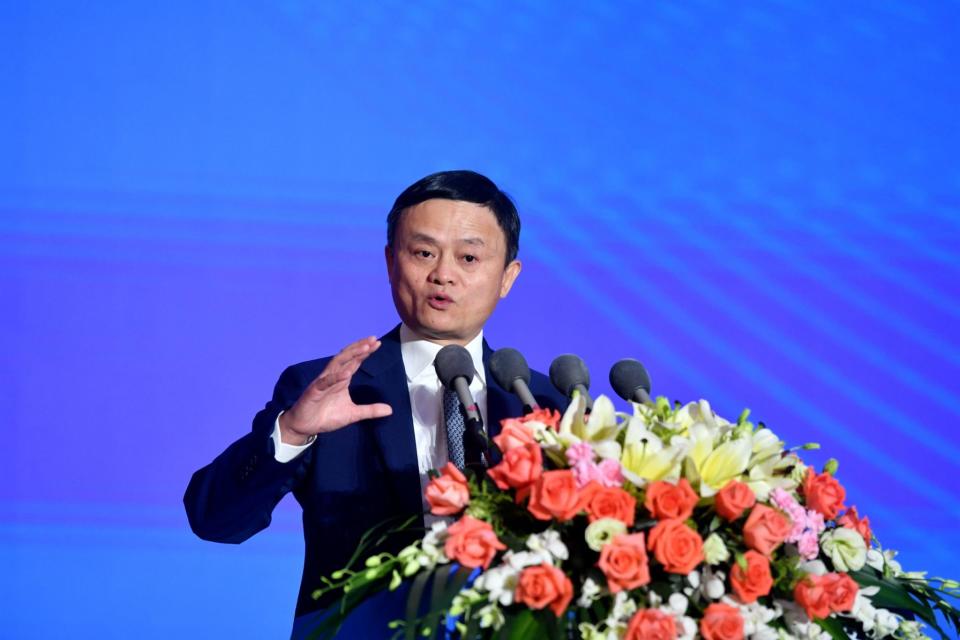Alibaba gains $13 billion in value after billionaire co-founders Jack Ma and Joe Tsai give ‘show of confidence’ by buying $200 million worth of shares

Alibaba, the beleaguered Chinese e-commerce giant, is getting a boost from its billionaire co-founders. The tech giant is facing consumption worries in its domestic market, intense competition from e-commerce upstarts, and fallout from geopolitical friction between Washington and Beijing, sending its shares down by 40% over the past year. But reports that co-founders Jack Ma and Joe Tsai ploughed $200 million into the company's shares are cheering investors, adding $13 billion to Alibaba's value in Tuesday trading.
The once-outspoken billionaire Ma bought $50 million worth of shares in the last quarter, The New York Times reports. An entity linked to Tsai also purchased nearly two million Alibaba depository shares worth about $152 million, according to a regulatory filing on Tuesday. Depository shares are shares of foreign companies held by U.S. depository banks and traded on the U.S. exchanges.
Alibaba’s stock in the U.S. closed around 7.9% higher in Tuesday trading, raising the e-commerce giant's market value to $188.3 billion, representing a jump of around $13.7 billion from the previous day. The company's Hong Kong traded shares are up 7.2% compared to the previous day's close. (Hong Kong's Hang Seng Index rose by 3.6%)
Alibaba's co-founders are now the company's largest shareholders, pulling ahead of Japanese investment holding company Softbank, according to the South China Morning Post. (Alibaba owns the SCMP).
Ma and Tsai's share purchases are a "show of confidence" in Alibaba, says Ray Wang, principal analyst at Silicon Valley-based research firm Constellation R, but he doesn't expect Ma to take a more active role in the company's operations. Ma stepped down as Alibaba's chairman in Sep. 2019; Tsai took over as the company's chairman in late 2023.
Ma has largely disappeared from the public eye since his run-in with Beijing in 2020, when his criticism of Beijing regulators helped torpedo the IPO of Ant Group, Alibaba's fintech affiliate. But Alibaba's founder is reemerging as the company faces a new e-commerce challenger: PDD Holdings, owner of the shopping platforms Pinduoduo and Temu.
PDD’s growth has outpaced Alibaba’s, with Pinduoduo and Temu’s business models appealing to a more cost-conscious consumer. PDD’s revenue for the quarter ending Sept. 30 increased 94% year-on-year, compared to a 9% jump at Alibaba. PDD's shares have surged 78% over the past six months compared to a 23% decline for Alibaba.
Ma took to an internal discussion forum in late November to call on Alibaba to "correct its course" in a message that also acknowledged PDD's success.
Alibaba has also become a victim of U.S.-China tensions. Last year, the e-commerce company shelved its plan to spin off its cloud computing unit as an independent company, blaming U.S. export controls on chips. U.S. restrictions on high-end semiconductors is making it difficult for Chinese companies like Alibaba and Tencent to get the advanced chips needed for data centers and AI applications.
This story was originally featured on Fortune.com